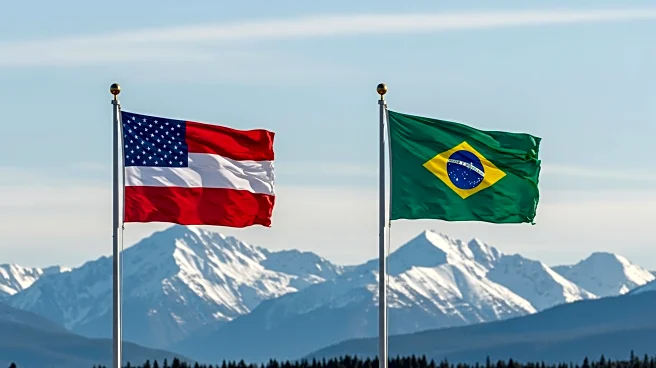What's Happening?
President Trump is set to meet with Russian President Vladimir Putin in Alaska for a summit focused on the ongoing conflict between Russia and Ukraine. Prior to the meeting, Putin visited a memorial dedicated to Russian-American cooperation during World War Two, highlighting historical ties between the two nations. The memorial commemorates the Alaska-Siberia air route, which was instrumental during the war. This meeting comes at a time when tensions are high, with concerns in Kyiv and Europe about potential territorial changes in Ukraine as suggested by Trump in previous comments.
Why It's Important?
The summit between President Trump and Putin is significant as it could influence the geopolitical landscape in Eastern Europe. The potential for territorial negotiations raises concerns about the sovereignty of Ukraine and the precedent it might set for international relations. The meeting underscores the delicate balance of power and the importance of diplomatic engagement in resolving conflicts. Stakeholders in Europe and the U.S. are closely monitoring the discussions, as any agreements could have far-reaching implications for regional stability and international norms.
What's Next?
Following the summit, reactions from Ukraine, European leaders, and international organizations are expected. The outcome of the meeting could lead to shifts in diplomatic strategies and alliances. There may be increased pressure on the U.S. administration to clarify its stance on territorial integrity and support for Ukraine. Additionally, the summit could influence future negotiations and peace efforts in the region, depending on the agreements reached between Trump and Putin.
Beyond the Headlines
The historical context of the memorial visit by Putin highlights the complex relationship between Russia and the U.S. The symbolism of past cooperation contrasts sharply with current adversarial dynamics, reflecting broader themes of trust and power in international relations. This event may also prompt discussions on the role of historical narratives in shaping contemporary diplomacy and the importance of maintaining alliances in the face of global challenges.









